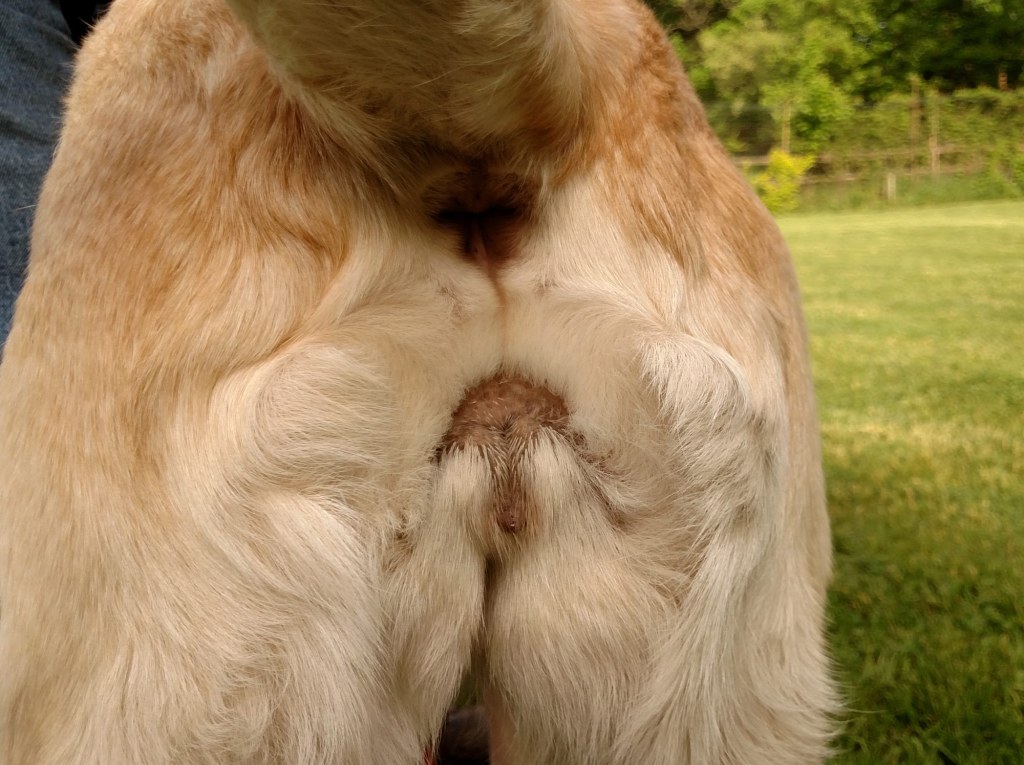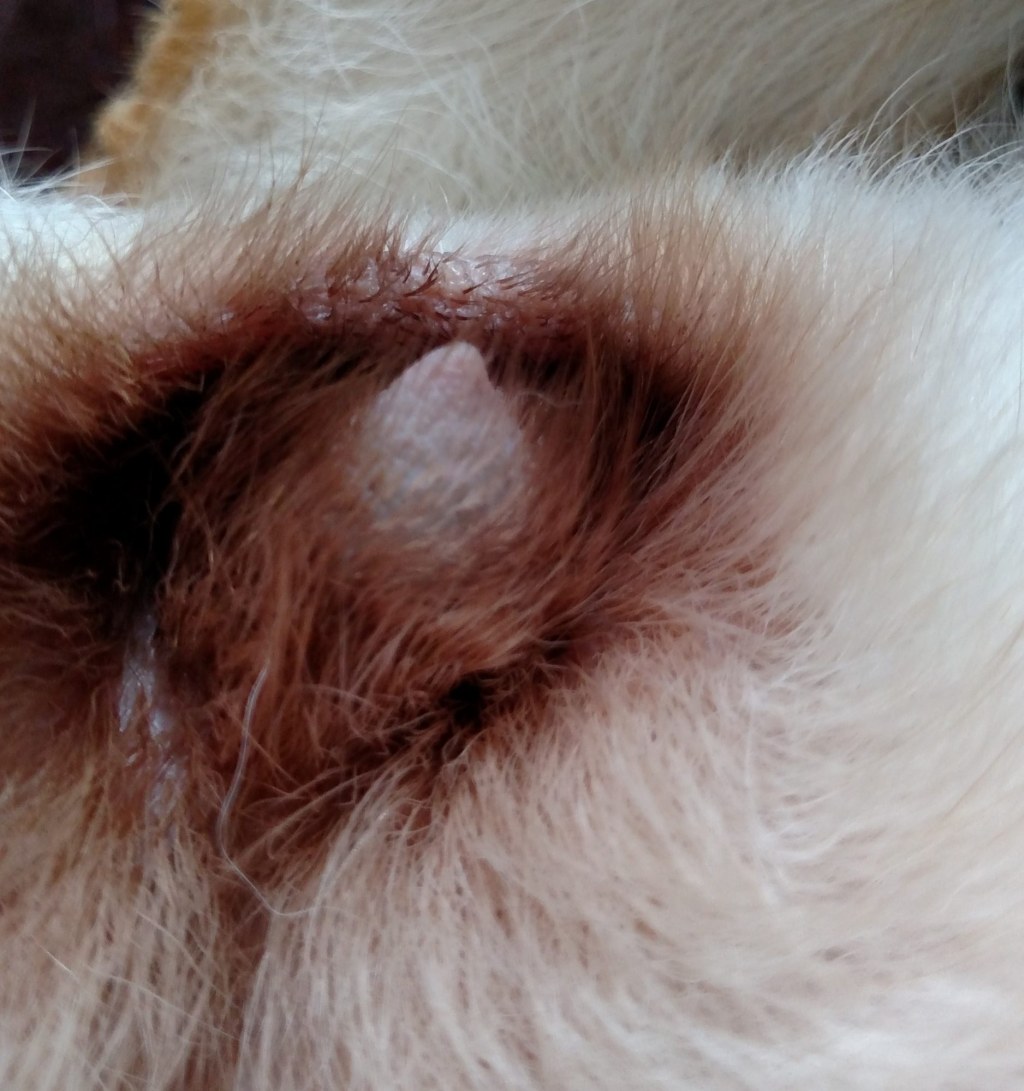Spotlight On Redundant Vulva In Puppies: Unveiling A Common Health Concern And How To Take Action
Redundant Vulva in Puppies: A Comprehensive Guide
Introduction
Greetings, Puppies Lover! In this article, we will delve into the topic of redundant vulva in puppies, providing you with all the necessary information you need to know. As a responsible dog owner, it is important to be aware of the various health conditions that can affect our furry friends. Redundant vulva, also known as vulvar fold dermatitis, is one such condition that can occur in female puppies. By understanding its causes, symptoms, and treatment options, you can ensure the well-being of your beloved pet.
1. What is Redundant Vulva in Puppies? 🐶
2 Picture Gallery: Spotlight On Redundant Vulva In Puppies: Unveiling A Common Health Concern And How To Take Action


Redundant vulva refers to an anatomical condition where excess skin folds develop around the vulvar area of female puppies. This condition is more commonly seen in certain breeds, such as Bulldogs, Boxers, and Shih Tzus. It can occur due to a variety of reasons, including genetic predisposition, hormonal imbalances, and poor hygiene.

Image Source: drphilzeltzman.com
2. Who is Affected by Redundant Vulva? 🐾
Female puppies, especially those from breeds prone to this condition, are most commonly affected by redundant vulva. However, it is important to note that not all puppies with excess skin folds will develop vulvar fold dermatitis. Certain factors, such as excessive moisture and poor hygiene, can contribute to the development of this condition.
3. When Does Redundant Vulva Occur? ⌛

Image Source: drphilzeltzman.com
Redundant vulva can be observed in puppies as young as a few weeks old. The excess skin folds around the vulvar area become more prominent as the puppy grows. It is crucial to monitor your puppy’s vulvar area regularly to detect any signs of inflammation or irritation that may indicate the presence of redundant vulva.
4. Where Does Redundant Vulva Occur? 📍
The condition primarily affects the vulvar area of female puppies. The excess skin folds can create a warm and moist environment, which is ideal for bacterial and fungal growth. This can lead to vulvar fold dermatitis, causing discomfort and potential health issues for the puppy.
5. Why is Redundant Vulva a Concern? ❓
Redundant vulva can cause several complications for puppies, including vulvar fold dermatitis, urinary tract infections, and the formation of cysts or abscesses. The excess skin folds trap moisture and irritants, creating an ideal breeding ground for bacteria and other microorganisms. If left untreated, these infections can lead to discomfort, pain, and potential long-term health problems.
6. How is Redundant Vulva Treated? ❗️
Treatment for redundant vulva may vary depending on the severity of the condition and the presence of secondary infections. In mild cases, regular cleaning and drying of the vulvar area, along with topical ointments or creams, may be sufficient. In more severe cases, surgical intervention to correct the excess skin folds may be necessary. It is essential to consult a veterinarian for a proper diagnosis and treatment plan tailored to your puppy’s specific needs.
Advantages and Disadvantages of Redundant Vulva in Puppies
1. Advantages of Redundant Vulva
While there are no direct advantages of redundant vulva in puppies, identifying this condition early on can prompt proactive measures to prevent complications and maintain the overall health of your furry companion.
2. Disadvantages of Redundant Vulva
Redundant vulva can lead to various health issues, including vulvar fold dermatitis, urinary tract infections, and the formation of cysts or abscesses. These conditions can cause significant discomfort and affect the overall well-being of your puppy.
Frequently Asked Questions (FAQs)
1. Can redundant vulva in puppies resolve on its own?
While mild cases of redundant vulva may improve with proper hygiene and care, more severe cases often require veterinary intervention for effective treatment.
2. How can I prevent redundant vulva in my puppy?
Maintaining good hygiene practices, such as regular cleaning and drying of the vulvar area, can help prevent the development of redundant vulva. It is also essential to keep your puppy’s living environment clean and dry.
3. Are certain breeds more susceptible to redundant vulva?
Yes, certain breeds, such as Bulldogs, Boxers, and Shih Tzus, are more prone to developing redundant vulva. However, it is important to note that any female puppy can be affected by this condition.
4. Can redundant vulva lead to long-term health problems?
If left untreated, redundant vulva can lead to complications such as recurring infections, chronic inflammation, and discomfort for your puppy. Timely intervention and appropriate treatment can help prevent these long-term health issues.
5. When should I consult a veterinarian for redundant vulva?
If you notice any signs of inflammation, redness, discharge, or discomfort in your puppy’s vulvar area, it is recommended to consult a veterinarian for a proper diagnosis and treatment plan.
Conclusion
In conclusion, redundant vulva in puppies is a condition that requires attention and proactive measures from dog owners. By understanding the causes, symptoms, and treatment options, you can ensure the well-being of your furry friend. Regular monitoring, good hygiene practices, and prompt veterinary care are essential in managing redundant vulva and preventing associated complications. Remember, your puppy’s health and happiness depend on your dedication as a responsible pet owner.
Start taking the necessary steps today to keep your puppy healthy and happy for years to come!
Final Remarks
Disclaimer: The information provided in this article is for educational purposes only and should not replace professional veterinary advice. It is always recommended to consult a veterinarian for a proper diagnosis and treatment plan tailored to your puppy’s specific needs.
This post topic: Puppies



